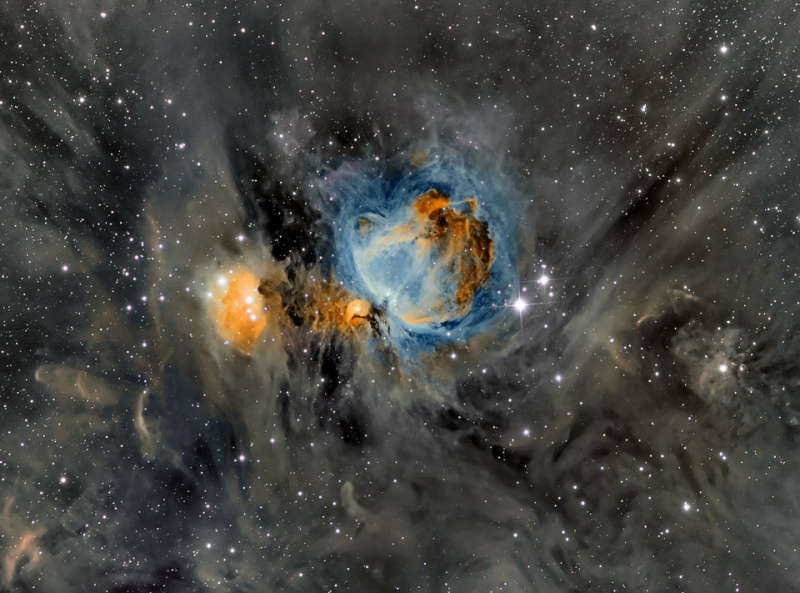Credit & Copyright: Robert Fields
Explanation:
What surrounds a hotbed of star formation?
In the case of the
Orion Nebula -- dust.
The
entire Orion field, located about 1600
light years away, is inundated with intricate and
picturesque filaments of dust.
Opaque to visible light,
dust is created in the outer atmosphere of massive
cool stars and expelled by
a strong outer wind of particles.
The Trapezium and other forming star clusters are embedded
in the nebula.
The intricate filaments of dust surrounding
M42 and
M43 appear gray in the
above image, while central glowing gas is highlighted in brown and blue.
Over the next few million years much of
Orion's dust will be slowly destroyed by the very stars
now being formed, or dispersed into the Galaxy.
Help Wanted:
APOD Assessment Officer
1999 2000 2001 2002 2003 2004 2005 2006 2007 2008 2009 2010 2011 2012 2013 2014 2015 2016 2017 2018 2019 2020 2021 2022 2023 2024 2025 2026 |
Yanvar' Fevral' Mart Aprel' Mai Iyun' Iyul' Avgust Sentyabr' Oktyabr' Noyabr' Dekabr' |
NASA Web Site Statements, Warnings, and Disclaimers
NASA Official: Jay Norris. Specific rights apply.
A service of: LHEA at NASA / GSFC
& Michigan Tech. U.
|
Publikacii s klyuchevymi slovami:
Orion Nebula - dust - Tumannost' Oriona - pyl' - zvezdoobrazovanie
Publikacii so slovami: Orion Nebula - dust - Tumannost' Oriona - pyl' - zvezdoobrazovanie | |
Sm. takzhe:
Vse publikacii na tu zhe temu >> | |
